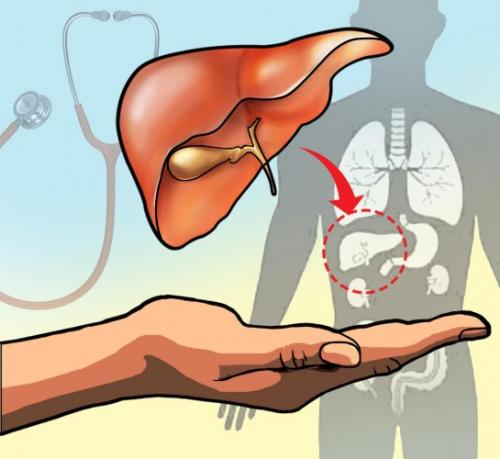Life After Liver Transplantation.

A liver transplant is a surgical procedure that involves the removal of a diseased liver that is no longer functioning correctly (liver failure) and the replacement of all or part of a healthy liver from a donor.
The liver is the largest internal organ and is responsible for several vital processes, including
• Processing drugs, nutrients, and hormones.
• Bile production, which aids the body's absorption of fats, cholesterol, and fat-soluble vitamins
• Producing proteins that keep blood from clotting
• Getting rid of toxins and bacteria in the blood
• Infection prevention
• Immune response regulation
Compliance with the immunosuppressive medical regimen directly contributes to the success of every liver transplant surgery, according to Dr. Gaurav Gupta, a well-known liver transplant surgeon in Mumbai.
Dr. Gaurav Gupta would like to answer some of the most common liver transplant-related queries and share his experiences in this article.
1. What are the chances of surviving a liver transplant?
The results of a liver transplant can be excellent. After the surgery, recipients can lead and live an everyday life for about 30 years.
According to the latest research-
· Five-year graft and patient survivals 81%
· Ten-year graft and patient survival is 65%
· Fifteen-year graft and patient survival is 50%
2. How can you secure the success of my liver transplant surgery?
The most compelling reason for every organ transplant is to save a life. Transplant recipients make a vital contribution to the success of their procedure. Noncompliance with the immunosuppressive treatment regimen is defined as failure. Close follow-up with our patients ensures a positive outcome. We sketch measures to prolong one's life following transplantation, from carefully followed medication regimes to lifestyle adjustments and infection-avoidance techniques.
3. How does a liver transplant affect one's quality of life?
According to Mumbai's liver transplant surgeon, the first three months after a liver transplant are the hardest. The body is adjusting, first to the "new" liver and then to the meds that go with it. The medical staff meticulously plans every patient's release procedures. We ensure that when they (patients) are offered discharge from the hospital, they can look after themselves, albeit with some modest restrictions, due to our therapy.
Our patients are expected to live "normal" lives. The good news is that most of them will be able to return to work within three months of receiving their transplant. As they re-acclimate to the workplace, some patients will require light-duty assignments. It is also feasible to participate in numerous sporting activities, get some healthy exercise, socialize, and travel.
4. What are the odds of my liver disease reappearing?
It varies from case to case. In some liver disorders, reappearance in the new liver is unavoidable. Hepatitis C is one such example. Our liver transplant specialists can provide you with information on the likelihood of recurrence of specific liver conditions. In such circumstances, our team will keep a close eye on you to help you avoid repetition.
5. How long will the recovery time last?
Most patients must stay in the hospital for 2-3 weeks after receiving a liver transplant. After that, patients recover at home and may resume their normal activities after about three months. The grant is not given for impairment for more than six months after a liver transplant unless there are complications. My advice to all patients is to plan ahead of time for their long-term employment goals, such as re-entering the workforce as soon as possible and obtaining health insurance coverage.
6. Will I require medicine following my liver transplant?
Following a liver transplant, patients must take a variety of drugs. This is to prevent rejection (immunosuppressant) and to combat the possibility of infection. There are roughly seven to ten different types of medications. As the patient heals, the number of medicines prescribed decreases. It's down to one or two drugs after three months.
Dr. Gaurav Gupta, a Mumbai-based liver transplant surgeon, would like to clarify that patients will be required to take immunosuppressive drugs for the rest of their lives in almost all situations. It is critical to take these medications exactly as directed and at the correct times. Missing medicine doses or stopping them on one's whim can result in organ rejection and failure.
7. Do the drugs administered after a liver transplant have any adverse effects?
There are side effects to many drugs. High blood pressure, mood changes, elevated blood sugar, and bone and muscle weakness are all common side effects of post-transplant medicines. Most patients will experience adverse effects at first, but they will usually fade over time.
Although side effects can be bothersome, drugs should never be stopped without the permission and knowledge of the transplant team. The range of drugs can be modified in severe cases to increase tolerance.
Post Your Ad Here
Comments